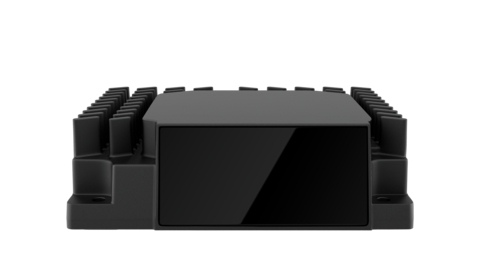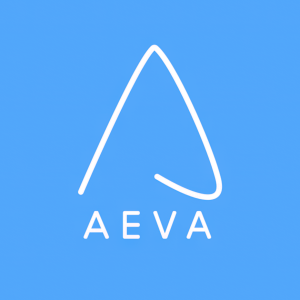Aeva Introduces Atlas – The First Automotive-Grade 4D LiDAR Sensor for Mass Production Automotive Applications
Powered by New Aeva Silicon Innovations Including CoreVision Next-gen Lidar-on-Chip Technology and Aeva X1, New System-on-Chip Processor

Aeva Atlas 4D LiDAR (Photo: Aeva)
“We are thrilled to introduce Atlas as the industry’s first automotive-grade 4D LiDAR sensor for mass production in automotive applications,” said Mina Rezk, Co-Founder and CTO at Aeva. “Atlas is the key development that will enable OEMs to equip their vehicles with advanced safety and automated driving features at highway speeds by addressing challenging use cases that could not be solved before. Importantly, we believe it will accelerate the industry’s transition to FMCW LiDAR technology, which we believe is increasingly considered to be the end state for LiDAR, offering greatly enhanced perception solutions that leverage its unique instant velocity data.”
Powered by New Aeva Silicon Innovations
- Aeva CoreVision™ Lidar-on-Chip Module – Designed to strict automotive standards, Aeva’s fourth-generation LiDAR-on-Chip module incorporates all key LiDAR elements including transmitter, detector and a new optical processing interface chip in an even smaller module. Built on Aeva’s proprietary silicon photonics technology, CoreVision replaces complex optical fiber systems found in conventional time-of-flight LiDAR sensors with silicon photonics, ensuring quality, and enabling mass production at affordable costs.
- Aeva X1™ System-on-Chip Processor – Aeva’s powerful new FMCW LiDAR SoC seamlessly integrates data acquisition, point cloud processing, scanning system and application software into a single mixed-signal processing chip. Designed for dependability with automotive-grade functional safety and cybersecurity.
Compact and Power Efficient
Together, Aeva’s new silicon innovations allow Atlas to be over
Industry-leading FMCW Performance
Using Aeva’s unique Frequency Modulated Continuous Wave (FMCW) 4D LiDAR technology, automated vehicles can unlock new levels of safety and vehicle automation by detecting objects faster, farther away, and with higher confidence – instantaneously discriminating between static and dynamic points and knowing the precise velocity of dynamic objects. Atlas delivers critical requirements for highway-speed driving with a
Advanced Perception Capabilities
Atlas is accompanied by Aeva’s perception software which harnesses advanced machine learning-based classification, detection and tracking algorithms. Incorporating the additional dimension of velocity data, Aeva’s perception software provides unique advantages over conventional time of flight 3D LiDAR sensors including:
- Aeva Ultra Resolution™: A real-time camera-like image that provides up to 20 times the resolution of conventional 3D LiDAR sensors.
- Road Hazard Detection: Detect small objects on the roadway with greater confidence at up to twice the distance of conventional 3D LiDAR sensors.
- Dynamic Object Detection: Discriminate, determine the velocity of, and track all dynamic objects with high confidence at up to twice the distance of high-performance 3D LiDAR sensors.
- Vehicle Localization: Estimate vehicle motion in real-time with six degrees of freedom for accurate positioning and navigation without the need for additional sensors, like IMU or GPS.
- Semantic Segmentation: Segment the scene into drivable lanes and non-drivable regions, pedestrians, vehicles and other elements such as traffic signs, vegetation, road barriers and infrastructure.
- Pedestrian Detection: Detect, classify, and track pedestrians to improve safety in use cases where pedestrians are on the roadway or close to curbs.
Aeva expects to release Atlas for production consumer and commercial vehicles starting in 2025, with samples available to select automotive OEMs and mobility customers earlier. To learn more about Atlas visit: www.aeva.com/atlas.
Aeva at CES® 2024
Aeva’s next-generation sensing and perception systems built on FMCW technology offer a wide variety of solutions for vehicle safety and automation. Visit the Aeva booth to see Atlas and experience Aeva’s family of sensing and perception products at LVCC West Hall #6841.
About Aeva Technologies, Inc. (NYSE: AEVA)
Aeva’s mission is to bring the next wave of perception to a broad range of applications from automated driving to industrial robotics, consumer electronics, consumer health, security and beyond. Aeva is transforming autonomy with its groundbreaking sensing and perception technology that integrates all key LiDAR components onto a silicon photonics chip in a compact module. Aeva 4D LiDAR sensors uniquely detect instant velocity in addition to 3D position, allowing autonomous devices like vehicles and robots to make more intelligent and safe decisions. For more information, visit www.aeva.com, or connect with us on X or LinkedIn.
Aeva, the Aeva logo, Aeva 4D LiDAR, Aeva Atlas, Aeries, Aeva Ultra Resolution, Aeva CoreVision, and Aeva X1 are trademarks/registered trademarks of Aeva, Inc. All rights reserved. Third-party trademarks are the property of their respective owners.
Forward looking statements
This press release contains certain forward-looking statements within the meaning of the federal securities laws. These forward-looking statements generally are identified by the words “believe,” “project,” “expect,” “anticipate,” “estimate,” “intend,” “strategy,” “future,” “opportunity,” “plan,” “may,” “should,” “will,” “would,” “will be,” “will continue,” “will likely result,” and similar expressions. Forward-looking statements are predictions, projections and other statements about future events that are based on current expectations and assumptions and, as a result, are subject to risks and uncertainties. Forward-looking statements in this press release include, but are not limited to expectations about our product features, performance, customers, manufacturability, scalability and cost. Many factors could cause actual future events to differ materially from the forward-looking statements in this press release, including, but not limited to: (i) the fact that Aeva is an early stage company with a history of operating losses and may never achieve profitability, (ii) Aeva’s limited operating history, (iii) the ability to implement business plans, forecasts, and other expectations and to identify and realize additional opportunities, (iv) the ability for Aeva to have its products selected for inclusion in OEM products, (v) the ability to manufacture at volumes and costs needed for commercial programs and (vi) other material risks and other important factors that could affect our financial results. Please refer to our filings with the SEC, including our most recent Form 10-Q and Form 10-K. These filings identify and address other important risks and uncertainties that could cause actual events and results to differ materially from those contained in the forward-looking statements. Forward-looking statements speak only as of the date they are made. Readers are cautioned not to put undue reliance on forward-looking statements, and Aeva assumes no obligation and does not intend to update or revise these forward-looking statements, whether as a result of new information, future events, or otherwise. Aeva does not give any assurance that it will achieve its expectations.
View source version on businesswire.com: https://www.businesswire.com/news/home/20240108481421/en/
Media:
Michael Oldenburg
press@aeva.ai
Investors:
Andrew Fung
investors@aeva.ai
Source: Aeva Technologies, Inc.







